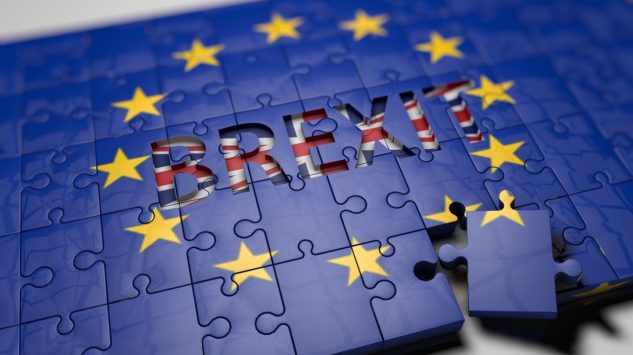Issue Briefs

Brexit 2020
January 8th 2020
By Michael Binyon
At the end of this month, Britain is to leave the European Union, 47 years after it joined what was then the Common Market. It will be a shock – although long anticipated – for the other 27 members. No country has ever left the EU, and this spectacular no-confidence vote will test the hopes of the remaining members to stay committed and united. They will miss not only Britain as an important part of the single market; they will also miss a lot of British expertise and the pragmatism of its diplomats, that in the past has often been useful in translating lofty aspirations of other members into the reality of new EU law.
Brexit not the only challenge for the EU
But Brexit will not be the only challenge facing a union that has so far shown remarkable resilience. The past decade has been a difficult one for the EU. The first half was dominated by the financial crisis that began in Greece in the last weeks of 2009. This swiftly turned into an existential threat to the Eurozone, as financial contagion spread to other vulnerable economies – in particular, Portugal, Italy, Ireland and Spain. Several of them needed huge and expensive EU emergency stand-by guarantees.
Migration crisis
Yet even when the Greek crisis was finally resolved in mid-2015, an even greater threat began. More than a million refugees, mainly from Syria but including also thousands of economic migrants from Africa, Iraq, Afghanistan and elsewhere, arrived on Europe’s borders. Germany took the morally brave but politically reckless decision to let them all come in.
Chancellor Merkel’s decision to throw open Germany’s borders had immediate repercussions on its neighbours, who suddenly feared that they too would be swamped by migrants. It almost led to the collapse of the Schengen border-free travel arrangements, as other states hastily instituted temporary border checks, or began building walls and fences across central and Eastern Europe to keep out the huge numbers of refugees slowly making their way on by train, bus and on foot across the Balkans.
The legacy of that crisis has continued to poison EU politics to this day, and has fueled support for anti-immigrant parties, and has boosted populist, right-wing Eurosceptic politicians, especially across former communist countries. Somehow Europe managed to survive both these challenges. But they have not gone away.
Economic stagnation
The threat of economic stagnation and slow growth in the Eurozone continues, as does the destabilising dominance of the German economy, which is still marginalising many of the struggling economies of southern and eastern Europe.
The Eurozone economies are, on the whole, more stable now, but economic growth remains lacklustre and has to be underpinned by a vast central bank bond-buying programme. This cannot continue indefinitely, and business confidence might soon evaporate if it stops.
China’s challenge
European economies are also being buffeted by the challenge of China, which is making ever greater inroads into the heartlands of the EU, buying up industries, controlling vital trade patterns and using its economic muscle to further its political as well as business interests in Europe. This is happening just at a time when America is losing interest in Europe. Donald Trump has already made it clear that he is not really committed to the collective defence of Europe through Nato. He also has no hesitation is being ready to slap punitive tariffs on EU imports if he thinks that Europe is posing unfair competition to US producers. And he has shown, with his readiness to challenge China, that he hardly even cares if a resulting global trade war harms US allies in Europe. And most European politicians now reckon it is highly probable that Trump will be re-elected in November.
Illegal migration problem will not be solved
The threat of continued illegal immigration into Europe, especially across the Mediterranean into Italy, Greece and Spain, also is likely to continue. For the moment, the numbers arriving have fallen. But if Turkey has a serious new quarrel with its western Nato allies, President Erdogan has already threatened to remove all controls and allow many of the almost 4 million refugees now being housed in Turkey to find their own way westwards into Europe. And they could be joined by a new wave of asylum seekers if the Iran crisis leads to a new war in the Middle East or the civil war in Libya makes it impossible to enforce any restriction on the people-smugglers now shipping thousands of Africans on flimsy boats across the Mediterranean.
Populist backlash
Further illegal immigration would only bolster the standing of right-wing populists in the EU. Already, the governments of Poland and Hungary have openly defied rulings from Brussels on sharing out the immigrant burden. They have also defied Brussels on many other issues, including the freedom of the press, the independence of the courts and the balances and checks of a democracy. Their anti-EU stance has in fact added to their popularity, and other politicians in the region may be tempted to take the same line – undermining both the authority and the standing of the European Union. Some populist politicians may even be tempted to urge their countries to copy Britain and leave the EU altogether, which would be a serious political blow.
Instability in the East and South
The EU also faces instability on its eastern and southern borders. This follows Russia’s annexation of Crimea and armed intervention in eastern Ukraine and the resultant freeze in East-West relations. This is bad for business, bad for morale and takes much of Europe back to the old confrontations of the Cold War. To the south of the EU, the fighting in Libya and Syria, the new crisis with Iran and the possible collapse of lucrative markets in the Gulf mean that the EU will have to pay much more attention to its defence in the coming decade. This will be costly, and it also will prompt further questions over whether Nato has outlived its usefulness and whether a new European defensive alliance can be built instead – crucially, without the main contributor to European defence, Britain.
Europe under siege
Europe enters the new decade under siege. Many of the familiar faces will change. In Germany, Angela Merkel’s long tenure as chancellor will soon be over, and so far no politician or single political party looks strong enough to give the country the firm and stable leadership Germans needs. In France, President Macron may still aspire to leadership of Europe’s international role. But the many challenges, strikes and demonstrations at home will preoccupy him and may severely weaken his authority. In Italy and Spain, political instability seems likely to continue, with regular fresh elections unable to produce a government that is either stable or effective. And the smaller countries of the EU, which have enjoyed playing a larger role on the world stage through the collective power of the whole union, may find their own influence diminished as the EU itself is squeezed between China, Russia, America and other competing forces.
Uncertain future for Britain
Many in Britain may feel they have been lucky in deciding to leave the EU. But even if the Brexit talks on future relations with the rest of Europe can be completed by the deadline at the end of this year (which looks unlikely), there is still huge uncertainty over what role Britain – still a permanent member of the United Nations Security Council – can play alone on the world stage. It will be a tough challenge for London as well as for Berlin, Paris and Rome.
 |
Michael Binyon is a GPI Senior Adviser. He has been an editorial writer, columnist and foreign correspondent for The Times (of London) since 1971. For 15 years he was based overseas, reporting from Moscow, Washington, Bonn and Brussels, before returning to London to be diplomatic editor in 1991 and becoming the main foreign editorial writer in 2000. He retired from the staff in 2009 but still writes for The Times and other publications, and is a frequent broadcaster for the BBC and French, German, Canadian, Russian and Middle Eastern radio and television.
|
He published “Life in Russia” in 1983, has won two British journalism prizes and was awarded the OBE by the Queen in 2000.